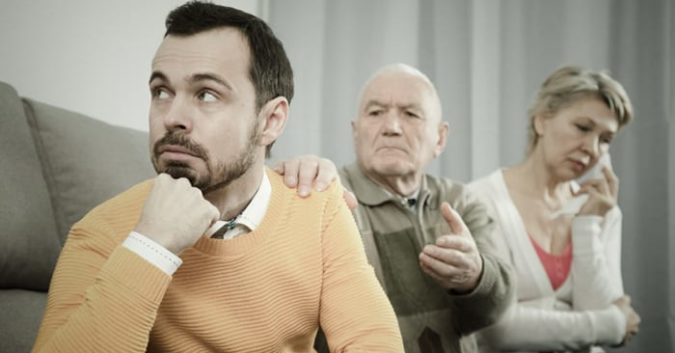Changes in stamina, strength, the senses, or memory are normal signs of aging. But along with this comes a darker side rarely talked about: financial exploitation.
Whether family members, nursing home assistants, nurses, insurers, salesmen, or caretakers, any member of a senior’s close circle is capable of using the aging process to their financial advantage. It’s a devastating but true fact of life. So widespread, financial abuse is now known as “the crime of the twenty-first century,” impacting 1 in 20 seniors to the tune of $2.9 billion annually.
Yet it’s still underreported.
What is financial elder abuse and why are the elderly particularly vulnerable? How do these crimes manifest? What are the signs? And how do we put a stop to them? Here, we’ll answer the most commonly asked questions about this crippling form of elder abuse and how to protect your loved ones.
What Qualifies as Financial Elder Abuse?
The National Center on Elderly Abuse defines financial or material exploitation as “the illegal or improper use of an elder’s funds, property, or assets.” Only 1 type of elder abuse – also encompassing physical, emotional, and sexual harm – financial abuse takes many forms in itself, from telemarketing scams to identity theft.
Experts cite older age and lower levels of cognitive function as the 2 biggest drivers of susceptibility to these crimes. Financial exploitation is particularly rampant among seniors with cognitive impairments, such as Alzheimer’s disease and other types of dementia.
And against common belief, not all abusers are door-to-door salesmen or manipulative cold callers. In fact, a tremendous 90 percent are family members or trusted acquaintances – ironically, the people best equipped to help.
In some cases, perpetrators act without the victim’s knowledge. In cases when the victim is aware, they may feel powerless to report a loved one for fear of jeopardizing the relationship or making the abuse worse. And more often than you’d think, research shows, well-meaning onlookers ignore what they witness, unsure if it’s truly abuse.
Whatever the case, financial abuse is severely underreported. The first step to better transparency is for onlookers to understand the warning signs.
What Are the Signs?
It’s important to note that certain seniors are more at risk of suffering financial abuse than others – and not just those with declining mental health. Elderly people who live in social isolation or need help with day-to-day tasks are also likely targets. A 2011 study showed women are nearly twice as likely to fall victim to financial elder abuse as men, and most victims are between the ages of 80 and 89.
Ultimately, however, seniors of any race, economic status, and health level are at risk.
They and family members should look out for:
- Unexpected changes to bank balances or processes
- Unexpected changes to a will or other legal documents
- Unauthorized account withdrawals or asset transfers
- The disappearance of funds or possessions
- A new friend offering to make decisions on their behalf
As a friend or relative of a senior, you may not always have the opportunity to notice these signs. What you can pay attention to are changes in your loved one’s behavior. Sudden depression, irritability, or withdrawal from normal activities or relationships – often dismissed as signs of declining health in seniors – are common symptoms of abuse.
If you suspect something, don’t write off your instinct before trying the following approaches.
What Can You Do to Prevent Financial Elder Abuse?
Protecting against financial elder abuse actually starts years in advance of the aging process.
One of your loved one’s best safeguards is a strong support system. Regular and caring conversations not only give you insight into your loved one’s affairs, they also build a foundation on which your loved one feels safe confiding in you.
Another crucial starting point is a plan for managing financial assets. Help your loved one put in place all necessary estate planning documents – a living will, medical power of attorney, and general durable power of attorney, for example – and more importantly, the right people to control them.
But if it’s too late to lay those foundations? Take action immediately.
First, ask your elderly loved one directly whether they have been the victim or fraud or abuse. It may seem obvious, but some elders are reluctant to speak up unless assured it’s the right thing to do. Next, consider confronting the abuser directly or getting authorities involved.
If you catch the abuser in their plans to act, you might stop abuse from materializing in the first place. The challenge comes as scams grow more sophisticated. As financial exploitation proliferates, we also need experts on the case.
Can’t Financial Advisors Help?
In an attempt to curb the growth and impact of financial elder abuse, the government this year passed the Senior Safe Act.
Modeled after Maine’s Senior$afe program, the Act urges financial institutions to take a more proactive role in abuse prevention. It calls for training employees to detect and report suspicious activity in return for liability protections.
After all, financial advisors are guilty of underreporting, too. Many are hesitant to report clients suffering from declining mental competencies but don’t have the skill or authority to make medical judgments. They might also be hesitant to report family members or friends, afraid that they don’t know the whole situation – and if considered overstepping, advisors risk their jobs.
So, though a helpful step forward in the war on financial exploitation, this law is ultimately a small feat. With protections, financial advisors may feel more empowered to act, but can’t be relied upon to risk losing business. Likewise, elders can’t be expected to fully protect themselves. It’s going to take a village to battle financial elder abuse, and family and friends are the greatest weapons.
The takeaway is not to take your loved one’s behavioral or lifestyle changes lightly. What’s a little proactivity in exchange for retirement security, strong family ties, and the safety of vulnerable people?
